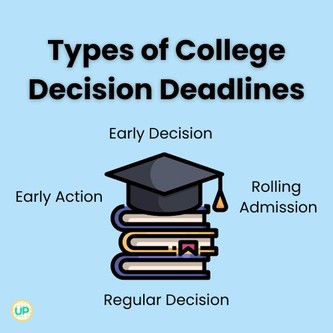ED, EA, REA, Rolling, and RD: What is the difference?
Jamshidbek Rasulov

ED - Early Decision
EA - Early Action
REA - Restrictive Early Action
Rolling Admission
RD - Regular Decision
ED stands for Early Decision. It is a binding application plan, which means that if you are accepted, you must attend the college and withdraw all other applications. You can only apply to one college ED. ED applications are usually due in November and you will hear back in December. ED may give you an advantage in admission, as it shows your commitment and interest in the college. However, you will not be able to compare financial aid packages from other colleges, and you may have less time to prepare your application materials.
EA stands for Early Action. It is a non-binding application plan, which means that if you are accepted, you can still choose whether to attend the college or not. You can apply to multiple colleges EA, as long as they are not REA. EA applications are also usually due in November and you will hear back in December. EA may also give you an advantage in admission, as it shows your initiative and enthusiasm for the college. You will also have more time to compare financial aid packages and decide.
REA stands for Restrictive Early Action. It is a non-binding application plan, but it is restricted, which means that you cannot apply to any other college’s early application program (EA or ED). You can only apply to one college REA. REA applications are typically due in November and you will hear back in December. REA may give you a slight advantage in admission, as it shows your preference and dedication to the college. You will also have more time to compare financial aid packages and decide.
Rolling Admission is an application plan that does not have a fixed deadline. Instead, the college accepts applications and makes decisions on a first-come, first-served basis, until the class is filled. You can apply to multiple colleges with Rolling Admission, and you will hear back within a few weeks of submitting your application. Rolling Admission may give you a higher chance of admission, as the competition is less intense and the college may have more spots available. You will also have more flexibility and control over your application timeline.
RD stands for Regular Decision. It is the most common and standard application plan. It is non-binding, which means that if you are accepted, you can still choose whether to attend the college or not. You can apply to multiple colleges RD. RD applications are usually due in January and you will hear back in March or April. RD does not give you any advantage in admission, as your application is compared to the entire pool of applicants. You will also have less time to compare financial aid packages and decide.

Comments